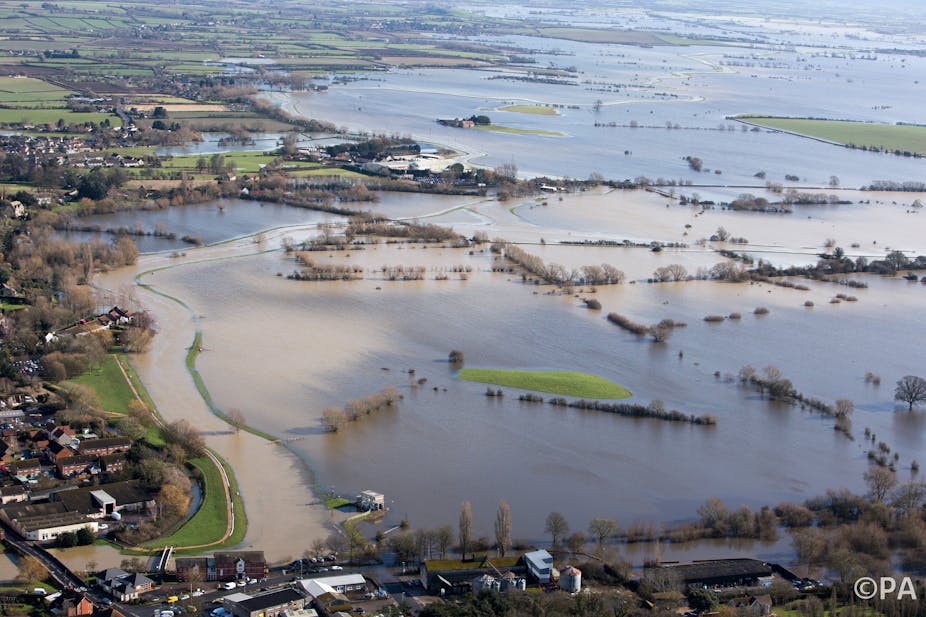Climate change is a serious threat to human safety and security according to the latest report from the UN’s International Panel on Climate Change. But also coming through loud and clear is that adaptation can reduce the risks we face from climate change.
Perhaps we shouldn’t be surprised; Charles Darwin was telling us this more than 100 years ago:
It is not the strongest or the most intelligent who will survive but those who can best manage change.
The latest report lays out the risks from climate change on food, water and livelihoods more strongly than ever before. Presenting a series of new studies, it shows that we are already feeling the effects of a warmer world – hotter weather may already be reducing yields of major food crops, for example.
The risks from climate change are clear and the latest IPCC report only adds more urgency to a global deal on reductions in greenhouse gas emissions to avoid the worst impacts. However, we can’t entirely mitigate our way out of this problem.
Adapting to changing climate
New in this report is much more emphasis on adaptation. Measures such as flood defences, shading on houses to keep out the heat and developing water-saving measures feature to abate the rising risks of climate change. The report shows how adaptation is already making the world more climate resilient and could reduce future risks by as much as 50%.
We can see how adaptation is helping to protect British citizens, for example. Investment in flood defence has meant that UK flood damages to property in 2014 were less than in 2007, despite very widespread flooding. But this has cost money and will continue to do so.
Adaptation has the potential to reduce some, but not necessarily all, impacts and many organisations are beginning to address climate change risks. But they often do not know exactly what they will have to adapt to.
So how can organisations and communities across the world adapt in a cost-effective way to climate change when scientists can only give a broad indication of what might happen to the local climate? It is possible to develop responses which are flexible to deal with uncertainty, but this may not be feasible in all cases or where investments are likely to be made over the long term.
Accounting for the short term
The IPCC report gives projections for 2050 or 2100, showing the broad, long-term risks of climate change. But they are still woefully short of regional and local detail. Adaptation is needed now and organisations are looking for information about the sort of climate extremes they might be facing this summer or next winter. There are relatively few organisations that plan over a 50 or 100-year timescale.
Research into what might happen to climate over the next year or the next 10 years is developing rapidly. The IPCC Working Group I report, which came out last September, included a whole chapter on near-term climate change for the first time, led by my colleague Rowan Sutton.
But the scientific challenges are massive in this area of climate research. Trying to forecast climate for the next year or next decade is in some ways more difficult than a forecast for 2050 or 2100. Near-term forecasts require a much better understanding of natural variations in climate and how these interact with human influences.
One example of recent research shows that a major current in the North Atlantic Ocean could be slowing down. Findings indicate that a recently measured slowdown of 10-15% may be part of larger decline that began in the 1990s and shows no sign of stopping.
This could have a significant impact on weather in Britain and elsewhere. The decline could cool the North Atlantic and reverse the recent pattern of wet British summers. It could also lead to fewer Atlantic hurricanes and more droughts in North Africa.
This isn’t a forecast, but it is research that is developing rapidly and could be tremendously beneficial in helping understand how climate is evolving. We won’t ever have absolutely precise climate forecasts of next summer or the next decade, but the potential is there to provide useful guidance.
Combining this with research into the impact of climate change on our lives is vital for adapting to and minimising the many risks that have been laid out in the latest IPCC report.

